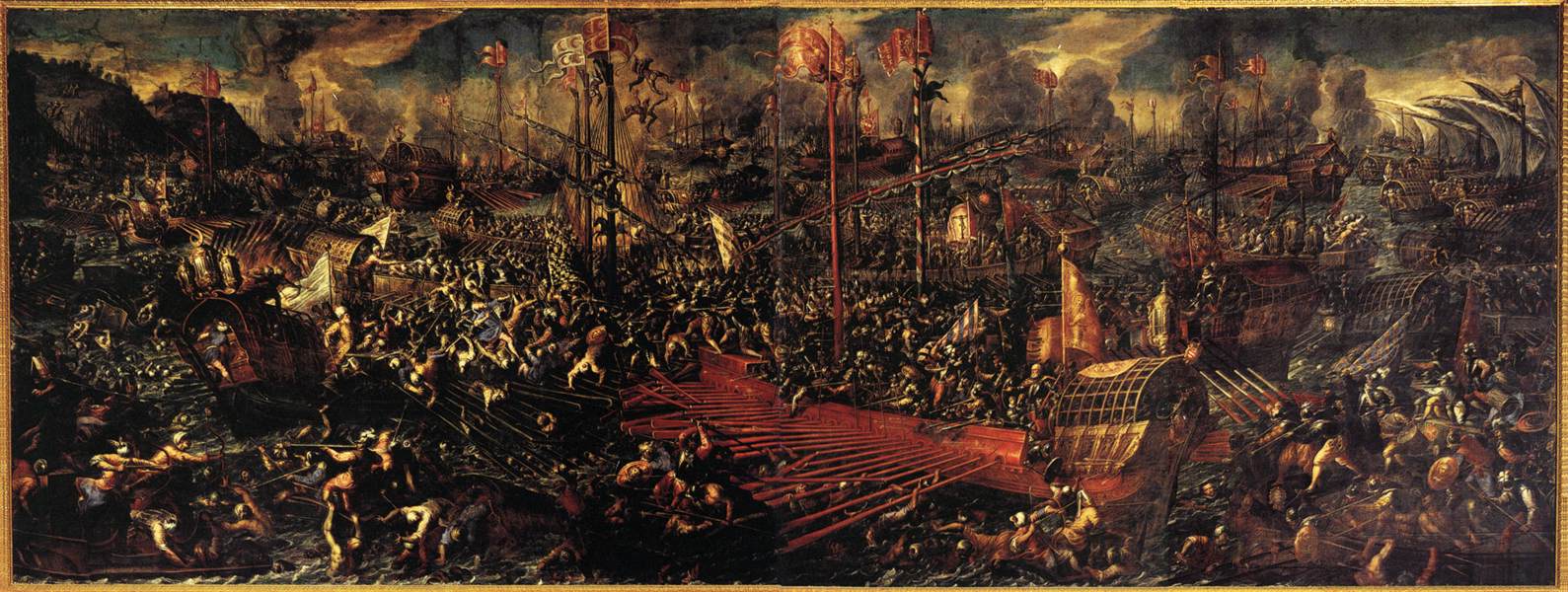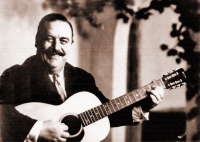450 Anniversary from the naval Battle of Nafpaktos

The Battle of Lepanto was a naval engagement that took place on 7 October 1571 when a fleet of the Holy League, a coalition of Catholic states arranged by Pope Pius V, inflicted a major defeat on the fleet of the Ottoman Empire in the Gulf of Patras. The Ottoman forces were sailing westward from their naval station in Lepanto (the Venetian name of ancient Naupactus—Greek Ναύπακτος, Ottoman İnebahtı) when they met the fleet of the Holy League which was sailing east from Messina, Sicily. The Spanish Empire and the Venetian Republic were the main powers of the coalition, as the league was largely financed by Philip II of Spain and Venice was the main contributor of ships.[10]
In the history of naval warfare, Lepanto marks the last major engagement in the Western world to be fought almost entirely between rowing vessels, namely the galleys and galeasses which were the direct descendants of ancient trireme warships. The battle was in essence an "infantry battle on floating platforms".[12] It was the largest naval battle in Western history since classical antiquity, involving more than 400 warships. Over the following decades, the increasing importance of the galleon and the line of battle tactic would displace the galley as the major warship of its era, marking the beginning of the "Age of Sail".
The victory of the Holy League is of great importance in the history of Europe and of the Ottoman Empire, marking the turning-point of Ottoman military expansion into the Mediterranean, although the Ottoman wars in Europe would continue for another century. It has long been compared to the Battle of Salamis, both for tactical parallels and for its crucial importance in the defense of Europe against imperial expansion. It was also of great symbolic importance in a period when Europe was torn by its own wars of religion following the Protestant Reformation. Pope Pius V instituted the feast of Our Lady of Victory, and Philip II of Spain used the victory to strengthen his position as the "Most Catholic King" and defender of Christendom against Muslim incursion.
Historian Paul K. Davis writes that,
"More than a military victory, Lepanto was a moral one. For decades, the Ottoman Turks had terrified Europe, and the victories of Suleiman the Magnificent caused Christian Europe serious concern. The defeat at Lepanto further exemplified the rapid deterioration of Ottoman might under Selim II, and Christians rejoiced at this setback for the Ottomans. The mystique of Ottoman power was tarnished significantly by this battle, and Christian Europe was heartened."
Event Properties
| Event Date | 10-10-2021 10:00 am CST |
| Event End Date | 10-10-2021 12:00 pm CST |
| Individual Price | Free |


